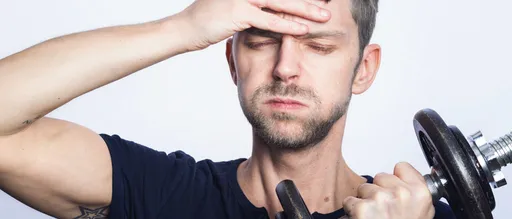“I believe that water is the only drink for a wise man.” ~ Henry David Thoreau
Staying Hydrated Is Smart
Our bodies are made up of a tremendous amount of water! Some specifics include:
- Our Brain = 80% water
- Our Muscles = 75% water
- Our Heart = 75% water
- Our Blood = 83% water
- Our Lungs = 90% water
- Our skin = 64% water
No wonder our bodies work better when we are adequately hydrated!
Water is essential to good health, but our individual needs vary based on each individual.
How much water should you drink each day? It’s a simple question with no easy answer.
This article explains the first two points while answering the third:
- Factors that influence how much water you need.
- Sources of water intake.
- How much water do you need each day?
Factors that Influence Water Needs
You might need to modify your total fluid intake based on several factors:
Exercise
If you do any activity that makes you sweat, you need to drink extra water to recover from the fluid loss.
Drinking water before, during, and after a workout is essential.
If intense exercise lasts more than an hour, a sports drink can replace minerals in your blood (electrolytes) lost through sweat.
Environment
Hot and humid weather will make you sweat more and increases your fluid needs. Dehydration also can occur at high altitudes.
Overall health
Your body loses fluids when you have a fever, vomit, or diarrhea.
Drink more water or follow your doctor’s recommendation to consume rehydration drinks.
Other conditions requiring increased fluid intake include bladder infections and urinary tract stones.
Pregnancy or breastfeeding
Women who are pregnant or breastfeeding need additional fluids to stay hydrated.
The Office on Women’s Health recommends that pregnant women drink about 10 cups (2.4 liters) of fluids each day and that women who breastfeed should consume about 13 cups (3.1 liters) of liquids daily.
Beyond the Tap: Other Sources of Water
You do not need to rely only on what you drink to meet your fluid needs. What you eat can also provide a significant amount of fluids.
For example, many fruits and vegetables (such as watermelon and spinach) are almost 100% water by weight.
Many beverages such as milk, juice, and herbal teas are composed mainly of water. Even caffeinated drinks like coffee and soda contribute to your daily water intake!
Amid these other alternatives, just water will always be your best bet (since it is calorie-free, inexpensive, and readily available)!
When it comes to exercise, sports drinks should only be consumed when you’re exercising intensely for more than an hour. These drinks help replace electrolytes lost through sweat (with sugar converted into energy during more prolonged bouts of exercise).
Energy drinks are different from sports drinks. Energy drinks do not replace electrolytes; they usually contain large amounts of caffeine, sugar, or other stimulants and additives.
When deciphering what to drink, you should always choose natural caffeine (such as coffee or tea) over soda and energy drinks.
Water Content for Certain Foods
The water content ranges based on the type of food. Some data from the USDA National Nutrient Database for Standard Reference (release 21, as provided in Altman.126) indicates the following foods for each percentage of water included:
- 90–99% water: Fat-free milk, cantaloupe, strawberries, watermelon, lettuce, cabbage, celery, spinach, pickles, squash (cooked)
- 80–89% water: Fruit juice, yogurt, apples, grapes, oranges, carrots, broccoli (cooked), pears, pineapple
- 70–79% water: Bananas, avocados, cottage cheese, ricotta cheese, potato (baked), corn (cooked), shrimp
- 60–69% water: Pasta, legumes, salmon, ice cream, chicken breast
- 50–59% water: Ground beef, hot dogs, feta cheese, tenderloin steak (cooked)
- 40–49% water: Pizza
- 30–39% water: Cheddar cheese, bagels, bread
- 20–29% water: Pepperoni sausage, cake, biscuits
- 10–19% water: Butter, margarine, raisins
- 1–9% water: Walnuts, peanuts (dry roasted), chocolate chip cookies, crackers, cereals, pretzels, taco shells, peanut butter
- 0% water: Oils, sugars
How Much Water Do You Need?
Every day you lose water through your breath, sweat, urine, and bowel movements.
For your body to function correctly, you must replenish its water supply by consuming beverages and foods that contain water.
How much fluid does the average, healthy adult in a temperate climate need? The National Academies of Sciences, Engineering, and Medicine determined that an adequate daily fluid intake is:
- About 15.5 cups (3.7 liters or 125oz) of fluids for men
- About 11.5 cups (2.7 liters or 91oz) of fluids a day for women
These recommendations cover fluids from water, food, and other beverages. About 20% of daily fluid intake typically comes from food, while the remainder comes from liquids (such as water, coffee, and tea).
Staying Safely Hydrated
To conclude, here are some helpful thoughts to guide you. Your fluid intake is probably adequate if:
- You rarely feel thirsty.
- Your urine is colorless or light yellow.
Choose water as your beverage to prevent dehydration and ensure your body has the fluids it needs. It is also a good idea to:
- Drink a glass of water or other calorie-free/low-calorie beverage with and between meals.
- Drink water before, during, and after exercise.
- Drink water if you are feeling hungry. Your body often confuses your thirst for hunger.
Although uncommon, it is possible to drink too much water.
When your kidneys can’t excrete the excess water, the sodium content of your blood becomes diluted (causing hyponatremia), which can be life-threatening.
Athletes, especially those participating in long or intense workouts or endurance events, are at a higher risk of hyponatremia.
Drinking too much water is rare in healthy adults who eat an average American diet.
Follow the steps above, and you will be well on getting the proper amount of water each day!



 10min to read
10min to read

 9min to read
9min to read